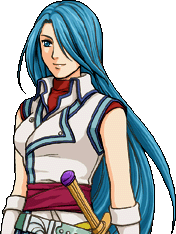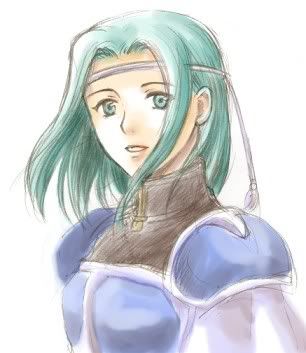Welcome to Factions of Abrana; a game meant to simulate internal power struggles in a fictional city-state. In this game players will work to elevate, or create their own factions so their characters can rise to power. Yet, they must also learn to work together as there are other forces at play, such as random nature events and foreign powers which seek to claim the wealth of Abrana.
Anyone looking to sign-up can. Do note you can only sign-up as a factionless now since the sign-up thread is closed. For more on creating your character sheet see the [Character Stats] section below.
Orders
There are two (2) orders in total for all players whether they own a faction or not. An order must be specified if it is a character order or faction order. Faction orders are more powerful and allow for more to be done, but offer less in the way of progressing character stats (see below section). Character orders are the opposite, they offer little rewards beyond progressing your character stats.
Each order involves both a primary and secondary stat to be used regardless of being a faction or character order. These stats are rolled on a 1d6; except for hindered and specialty stats which the player picks in character creation. These stats modify their rolls in orders because each order has a primary and secondary stat being used. Orders can be on anything, they can be to buy more farms, set up a smuggling contact in a foreign nation, visit said nation, start working on a coup, or just party until you drop. It is preferred these are clearly stated as well. Here are some examples to give an idea of what does and doesn't make a clear order.
Bad Example: William will break into the apartment using his strength, then sneak around looting the place. After which we will talk to the owner to give more money from intimidation, and use his knowledge of fine arts to know the best things to take.
Good Example: John believes he can break into a house. This will require more strength than stealth so he will be just breaking down the door. (Primary stat martial, Secondary stealth).
As you can see short clear and concise orders are preferred over long and confusing ones. Not to mean long ones will be ignored so long as they make their intention clear and follow the rules.
Resources
There is a large amount of resources in this game. This section will just give an abridged description. First are warships, which are used for naval battles. Second, are soldiers, these are your fighters and their quality depends on your rolls. Third, agents, these are your thieves, spies, and other intrigue based employees. Fourth, workers who convert miscellaneous (other) resources into tradable items, such as turning flax into ship sails, they help with increasing income. Fifth, population, these are your taxed citizens.
The rest of the resources are just general money, which is used to buy things. Resources, whatever none food items produced which can be traded or used. For instance to expand on the city walls an amount of resources will be required, such as stone, tolls, and even workers for labor. Food, the most important. Should someone run out of food, people begin to starve and die. This goes for factions and the City as a whole.
When it comes to purchasing and building things there are some general guidelines I use. I say guidelines because the prices can change based on the stats the player is using in the order, and how it is being used. For instance rather than buy a farm at full price, you could supplant the resources you're making to reduce price rather than buy all the material.
City Politics
A fair amount of players will be members of the leading city body, the Echelon. Both storied, random, and player caused events will happen throughout the game. Some of these will put the city at risk. While the players may want to become ruler of the city, if they squabble amongst one another it may lead to the city's destruction.
This is the political aspect the game. Players will need to make alliances, and deals with one another in order to gain more power within the city together. They also will have to put their differences aside to survive. If the city falls then so to will the players, as they are part of Abrana.
IC
IC is an acronym for In Character. In this instance IC means a post made from the perspective of your character, or others involved in that character’s story. Though people will own their own faction they still are running it through a character. EVERY player will be required to make an IC every two turns, so two weeks. If a player does not they will be kicked from the game. I'm not a hard ass though, your IC can be as simple as your character sipping water while stating their thoughts on what they did (results of their orders).
Naturally there will be some conflict amongst players and their ICs. Please bring these to me and an investigation will commence. The more evidence you have on whatever claims there are will help as well. I try hard to be an objective GM.
Character Stats - these are the abilities of your character.
Martial: Rolls involving fighting, or just physical force in general.
Wisdom: Rolls that require knowledge of certain things, foreign relations, city layout, best fighting techniques, whatever.
Diplomacy: Rolls that involve diplomatic situations, treaties, election, the like.
Stealth: Rolls that involve intrigue
Administration: Rolls relating to money, trade, and the like.
Layout for a character sheet.
Name:
Faction/Factionless:
Character Stats:
•Specialty- only one ex) martial (martial rolls are with a 1d10)
•Hindrance- only one ex) administration (admin rolls are with a 1d4)
Faction Traits: Optional for Facitonless. Will be rolled upon to see which are gained.
•Positive - up to three allowed, can't all have the same effect.
•Negative - up to three allowed, can't all have the same effect
Anyone looking to sign-up can. Do note you can only sign-up as a factionless now since the sign-up thread is closed. For more on creating your character sheet see the [Character Stats] section below.
Orders
There are two (2) orders in total for all players whether they own a faction or not. An order must be specified if it is a character order or faction order. Faction orders are more powerful and allow for more to be done, but offer less in the way of progressing character stats (see below section). Character orders are the opposite, they offer little rewards beyond progressing your character stats.
Each order involves both a primary and secondary stat to be used regardless of being a faction or character order. These stats are rolled on a 1d6; except for hindered and specialty stats which the player picks in character creation. These stats modify their rolls in orders because each order has a primary and secondary stat being used. Orders can be on anything, they can be to buy more farms, set up a smuggling contact in a foreign nation, visit said nation, start working on a coup, or just party until you drop. It is preferred these are clearly stated as well. Here are some examples to give an idea of what does and doesn't make a clear order.
Bad Example: William will break into the apartment using his strength, then sneak around looting the place. After which we will talk to the owner to give more money from intimidation, and use his knowledge of fine arts to know the best things to take.
Good Example: John believes he can break into a house. This will require more strength than stealth so he will be just breaking down the door. (Primary stat martial, Secondary stealth).
As you can see short clear and concise orders are preferred over long and confusing ones. Not to mean long ones will be ignored so long as they make their intention clear and follow the rules.
If that still isn't clear follow this simple template:
What type of Order(s)
The Order <some text> (primary stat, secondary stat).
The Order <some text> (primary stat, secondary stat).
STATS: Abridged description
Everything does change based off orders, events, and how the players change their stats. That means this is all going off of the Placeholder stats.
Warships - these are ships meant for war, their base price is 25 abras.
Soldiers - these may not do all the fighting but they're the best for it. They cost a base of 5 abras to get through orders.
Workers - these convert other and raw materials into sellable resources. Base price of 2 abras.
Agents - these are the stealth master. Factions need these to do stealth based orders. 10 abras.
Population - all people in a faction that do not fall under the above. They each consume 2 food seasonally, to account for people who eat more than their share, and seasonal food spoilage. Also as a balance for the fact money can be made off them.
Trade Income - money made from trade
Tax Modifier - this is how much money is made off of each population count.
Tariff Modifier - sometimes people want to discourage foreign trade, so there are higher taxes placed on citizens for importing goods.
Trade Modifier - is the average income taken in through taxes off of exporting goods outside the city.
Deposit - money/debt accumulated throughout the game.
Net Resources - total resources made, which can be used to sell or even help with building things if stated in orders.
Surplus - accumulated resources
Resources Made - the resources produced that turn.
Food Produced - net food production. Underneath in stats is the food turn income.
Raw Materials - all materials made of buildings which need workers to convert into resources.
Farms - worth a base of 500 abras, resources can be used to replace abras to any degree but at twice the amount, producing 1000 units of food a turn.
Fishing ships - worth a base of 100 abras, resources can be used to replace abras to any degree but at twice the amount, produces 200 food a turn.
Hunters - worth a base of 4 abras, produces 75 food a turn.
Food Surplus - accumulated food. After every winter a percentage between 60-90% will be rolled to remove that amount from the surplus to represent food spoilage.
Mines - cost 500 abras, resources can be used to replace abras to any degree but at twice the amount, produces 1000 raw material
Lumbercamp -cost 200 abras, resources can be used to replace abras to any degree but at twice the amount, produces 400 raw material
Other Resources - any raw goods that do not fall under the domain of Minerals nor Lumber.
Everything does change based off orders, events, and how the players change their stats. That means this is all going off of the Placeholder stats.
Warships - these are ships meant for war, their base price is 25 abras.
Soldiers - these may not do all the fighting but they're the best for it. They cost a base of 5 abras to get through orders.
Workers - these convert other and raw materials into sellable resources. Base price of 2 abras.
Agents - these are the stealth master. Factions need these to do stealth based orders. 10 abras.
Population - all people in a faction that do not fall under the above. They each consume 2 food seasonally, to account for people who eat more than their share, and seasonal food spoilage. Also as a balance for the fact money can be made off them.
Trade Income - money made from trade
Tax Modifier - this is how much money is made off of each population count.
Tariff Modifier - sometimes people want to discourage foreign trade, so there are higher taxes placed on citizens for importing goods.
Trade Modifier - is the average income taken in through taxes off of exporting goods outside the city.
Deposit - money/debt accumulated throughout the game.
Net Resources - total resources made, which can be used to sell or even help with building things if stated in orders.
Surplus - accumulated resources
Resources Made - the resources produced that turn.
Food Produced - net food production. Underneath in stats is the food turn income.
Raw Materials - all materials made of buildings which need workers to convert into resources.
Farms - worth a base of 500 abras, resources can be used to replace abras to any degree but at twice the amount, producing 1000 units of food a turn.
Fishing ships - worth a base of 100 abras, resources can be used to replace abras to any degree but at twice the amount, produces 200 food a turn.
Hunters - worth a base of 4 abras, produces 75 food a turn.
Food Surplus - accumulated food. After every winter a percentage between 60-90% will be rolled to remove that amount from the surplus to represent food spoilage.
Mines - cost 500 abras, resources can be used to replace abras to any degree but at twice the amount, produces 1000 raw material
Lumbercamp -cost 200 abras, resources can be used to replace abras to any degree but at twice the amount, produces 400 raw material
Other Resources - any raw goods that do not fall under the domain of Minerals nor Lumber.
Resources
There is a large amount of resources in this game. This section will just give an abridged description. First are warships, which are used for naval battles. Second, are soldiers, these are your fighters and their quality depends on your rolls. Third, agents, these are your thieves, spies, and other intrigue based employees. Fourth, workers who convert miscellaneous (other) resources into tradable items, such as turning flax into ship sails, they help with increasing income. Fifth, population, these are your taxed citizens.
The rest of the resources are just general money, which is used to buy things. Resources, whatever none food items produced which can be traded or used. For instance to expand on the city walls an amount of resources will be required, such as stone, tolls, and even workers for labor. Food, the most important. Should someone run out of food, people begin to starve and die. This goes for factions and the City as a whole.
When it comes to purchasing and building things there are some general guidelines I use. I say guidelines because the prices can change based on the stats the player is using in the order, and how it is being used. For instance rather than buy a farm at full price, you could supplant the resources you're making to reduce price rather than buy all the material.
City Politics
A fair amount of players will be members of the leading city body, the Echelon. Both storied, random, and player caused events will happen throughout the game. Some of these will put the city at risk. While the players may want to become ruler of the city, if they squabble amongst one another it may lead to the city's destruction.
This is the political aspect the game. Players will need to make alliances, and deals with one another in order to gain more power within the city together. They also will have to put their differences aside to survive. If the city falls then so to will the players, as they are part of Abrana.
IC
IC is an acronym for In Character. In this instance IC means a post made from the perspective of your character, or others involved in that character’s story. Though people will own their own faction they still are running it through a character. EVERY player will be required to make an IC every two turns, so two weeks. If a player does not they will be kicked from the game. I'm not a hard ass though, your IC can be as simple as your character sipping water while stating their thoughts on what they did (results of their orders).
Naturally there will be some conflict amongst players and their ICs. Please bring these to me and an investigation will commence. The more evidence you have on whatever claims there are will help as well. I try hard to be an objective GM.
Character Stats - these are the abilities of your character.
Martial: Rolls involving fighting, or just physical force in general.
Wisdom: Rolls that require knowledge of certain things, foreign relations, city layout, best fighting techniques, whatever.
Diplomacy: Rolls that involve diplomatic situations, treaties, election, the like.
Stealth: Rolls that involve intrigue
Administration: Rolls relating to money, trade, and the like.
Layout for a character sheet.
Name:
Faction/Factionless:
Character Stats:
•Specialty- only one ex) martial (martial rolls are with a 1d10)
•Hindrance- only one ex) administration (admin rolls are with a 1d4)
Faction Traits: Optional for Facitonless. Will be rolled upon to see which are gained.
•Positive - up to three allowed, can't all have the same effect.
•Negative - up to three allowed, can't all have the same effect
Last edited:























:origin()/pre01/d529/th/pre/i/2014/082/6/8/rollo__portrait__by_sweetcidia-d7baqv0.jpg)


